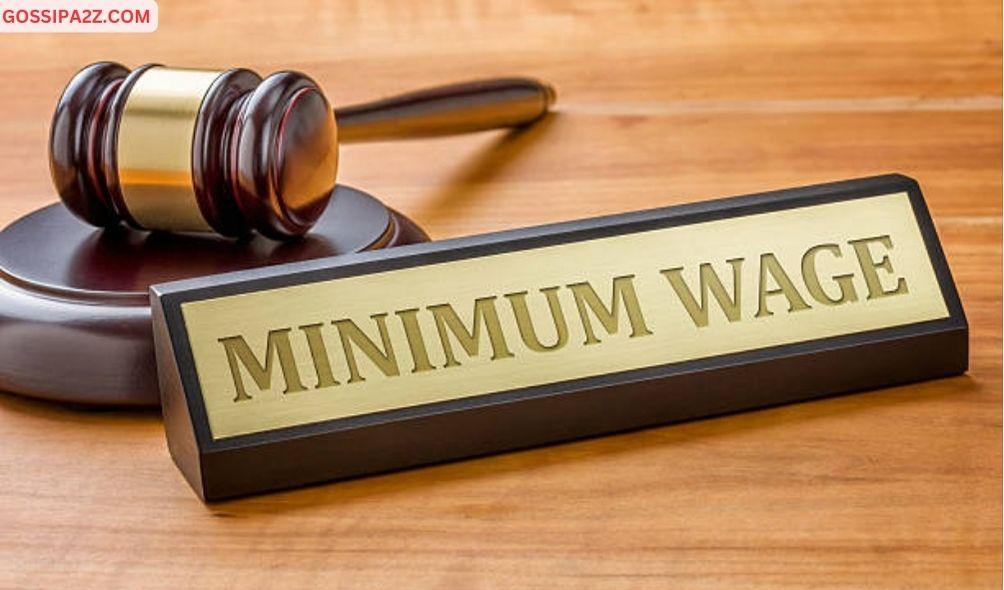Kenya’s New Minimum Wage Order: Who Gets Paid What?
On January 31, Labor Cabinet Secretary Florence Bore announced that Kenya intends to employ the Regulation of Wages (General) (Amendment) Order 2022 for determining the baseline minimum monthly salaries.
The wage framework, crafted by the current Cooperatives CS Simon Chelugui, classifies salaries based on various demographic factors.
The classifications comprise individuals from Kenya employed in urban areas, as well as those from the previous municipalities and town councils of Mavoko, Ruiru, and Limuru, along with residents from the rest of the nation.
General Labourers
This group comprises individuals such as cleaning staff, sweepers, gardeners, childcare providers, domestic helpers, daytime security guards, and couriers.
Employees in Nairobi, Mombasa, Kisumu, and Naivasha are eligible to receive a salary of Ksh15,202.
Workers in the previous local authorities earn a monthly wage of Ksh14,025, whereas those in other parts of the country receive Ksh8,109.
Miners
This group also includes individuals such as stone cutters, turn boys, waiters, chefs, loggers, and line cutters.
The individuals mentioned above earn a salary of Ksh16,417 in urban areas of Kenya, while those employed in the former municipalities receive a wage of Ksh14,566.
The remaining individuals in the group receive a meager compensation of 9,370.
Night Watchmen
Individuals employed in urban areas are paid a daily wage of Ksh813, amounting to a monthly income of Ksh16,959.
Night security guards in the previous municipalities and town councils of Mavoko, Ruiru, and Limuru receive a monthly salary of Ksh15,722, while other night watchmen are compensated at Ksh9,672.
Machine Attendants
The classification is extensive and includes roles such as sawmill sawyer, machine assistant, mass production mechanist, and shoe cutter.
Employees in the bakery and their helpers, as well as assistants in tailoring, are also included in this group.
The pay for employees varies depending on their location, with salaries of Ksh17,729 for those in cities, Ksh16,033 for individuals in former municipalities, and Ksh12,995 for those in other parts of the country.
Machinist
Employees in this group include individuals engaged in tasks such as preparing shoe uppers, crafting chaplis, working in vehicle services (petrol and service stations), operating in bakery plants, handling laundry operations, serving as junior clerks, and driving wheel tractors.
The hourly rates for individuals employed in urban areas amount to Ksh176, resulting in a monthly salary of Ksh19,668.
The salary amounts to Ksh18,399 for individuals employed in the former municipalities, while those working in other regions of the country receive Ksh15,043.
Print operators
Employees falling under this classification are divided into various roles, including printing machine operators, bakery machine operators, plywood machine operators, sawmill dressers, and shop assistants.
Additional professions encompass machine tool operators, individuals skilled in dough preparation, table-based bakers or confectioners, copy typists, and drivers operating cars and light vans.
The Kenyan government mandates salaries of Ksh20,517, Ksh18,936, and Ksh15,652 for individuals employed in urban areas, former municipalities, and other regions, respectively.
Designers
The group includes individuals with roles such as pattern designer (draughtsman), garment and dress cutter, single-hand oven operator, charge-hand baker, general clerk, telephone operator, receptionist, and storekeeper.
Those employed in urban areas receive a substantial monthly income of Ksh23,413, while those working in the former municipalities and town councils of Mavoko, Ruiru, and Limuru earn Ksh18,936.
In other parts of the nation, the Ministry of Labour establishes a minimum wage of Ksh18,251.
For Tailors and Drivers (medium-sized vehicles):
It is illegal to compensate employees within this category below Ksh25,804, Ksh23,716, and Ksh21,147 for those working in urban areas, former municipalities, and other regions of the country, respectively.
Saw doctor and building caretakers
This marks the initial group of individuals with lower incomes who now receive a basic salary exceeding Ksh30,000.
The salary is distributed as Ksh31,525 for city workers, Ksh29,437 for former municipality employees, and Ksh27,423 for those in other parts of the country.
Cashier, Driver (Heavy Commercial Vehicles) and Salees-man Driver
The daily wage for individuals employed in Nairobi, Kisumu, Mombasa, and Naivasha is Ksh1,651, equating to a monthly income of Ksh34,302.
Meanwhile, those working in the former municipalities and town councils of Mavoko, Ruiru, and Limuru receive a monthly salary of Ksh32,280, while others earn Ksh30,266.
Artisans
This classification comprises Ungraded Artisans, as well as Grade 1, 2, and 3 Artisans.
Furthermore, the workforce is categorized into tier 1 (cities), tier 2 (all previous municipalities and town councils of Mavoko, Ruiru, and Limuru), and tier 3 (remaining areas in the country).
In terms of compensation, ungraded artisans receive Ksh20,517, Ksh18,936, and Ksh15,652, with the amounts decreasing from the top tier to the bottom.
Artisan Grade 3 receives compensation of Ksh25,804, Ksh23,716, and Ksh21,107 for tiers 1, 2, and 3 correspondingly.
For Grade 2 artisans, the remuneration stands at Ksh27,870, Ksh26,579, and Ksh23,988 for cities, former municipalities, and the remaining regions of the country respectively.
Grade 1 artisans are entitled to Ksh34,302 while working in Nairobi and other cities, and Ksh32,280 when employed in all former municipalities and town councils such as Mavoko, Ruiru, and Limuru.
Grade 1 artisans employed in other parts of the country receive a minimum monthly wage of Ksh30,266.
Kenya’s New Minimum Wage Order: Who Gets Paid What?
